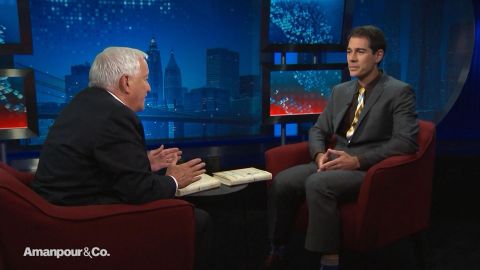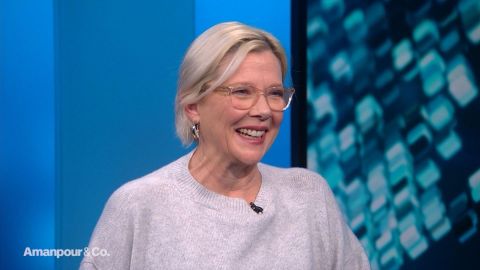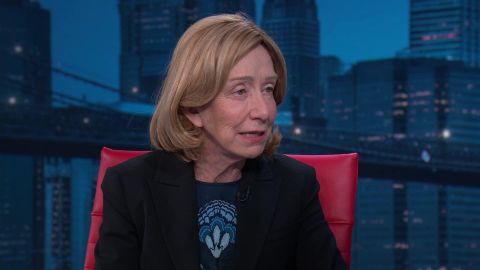Read Transcript EXPAND
CHRISTIANE AMANPOUR: What has stood out as a historian then and now with these hearings?
DORIS KEARNS GOODWIN, PRESIDENTIAL HISTORIAN: I think the thing that stands out most is that there’s two competing narratives that are now being told of that weeklong hearings. I mean, if you were listening to MSNBC or CNN, you might have heard what these witnesses said and felt about them they were professionals taking a huge risk in their lives to do this. If you listened to alternative cable networks or social media, it would be attacking their credibility that the story wasn’t real, that it wasn’t true, and both narratives are believed. We’re at a time in our history where it seems to me it’s like the 1850s, which is scary, when such partisan understanding was dividing the country. You only read your own newspaper. You couldn’t get news any other way. So, you’re reading the Republican, the Whig, the Democratic newspaper, you could be reading about a Lincoln/Douglas debate and read it in the Republican papers and he’s carried out in triumph. You read it in the Democratic papers, he falls on the floor and he’s so embarrassed, they have to drag him out of the floor. And that’s the situation we’re at. Can we reach a consensus? The goal would hopefully be, if you have an impeachment proceeding like with Nixon, almost, that by the end of it, the country agreed that should happen. Otherwise, it would just going to be more divided than we are now, then the country’s going to be hurt by all of this.
AMANPOUR: So, the question then is — because it looks like the country is going to continue to be divided, it doesn’t look at the moment even despite, you know, President Trump has had all the Republican senators, the jury, if it comes to that, to lunch, to a way days at Camp David, et cetera, trying to persuade them and put his case. But what happens if it remains entirely along partisan lines? Will it have been worth the price? Because certainly, the Democratic leadership was worried about that, that they didn’t even want to bring this impeachment process, if it wasn’t going to have some bipartisanship to it.
GOODWIN: Well, I think the decision they finally made, and there’s two parts to it. One was that, if they didn’t do this, then they might risk similar behavior on part of President Trump. That right after the Mueller report was released, it was the next day after that he called up Zelensky. So, there was some sense that if they didn’t check and balance him, they wouldn’t be doing their responsibility. The harder question for them is, they have to educate the country. Not just the other Republicans about what does an abuse of power mean, what does it mean to break the rule of law, what is obstruction of justice? They can’t be just words. It has to be a giant civics, a giant civics lesson now, if they’re going to persuade even not the votes necessarily, but the country, that this was an important thing to do now.
About This Episode EXPAND
Doris Kearns Goodwin speaks to Christiane Amanpour about qualities found in good leaders and divisiveness in the U.S., Annette Bening looks back on her acting career and discusses her role in the film “The Report” and Joel Stein analyzes the rise of populism with Walter Isaacson.
LEARN MORE


